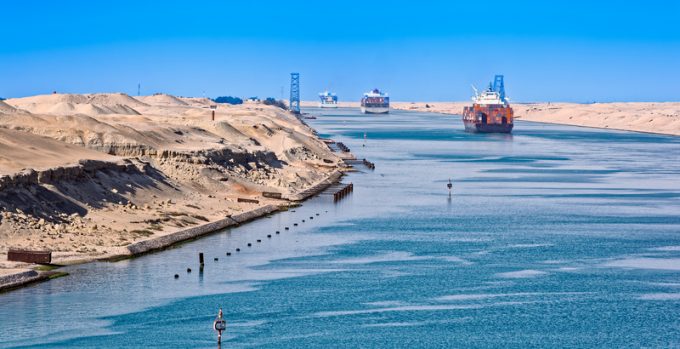Diversions from Red Sea proving a real ‘silver lining’ for carriers
The current equilibrium between supply and demand in container shipping depends on the duration of ...

The containership charter market is set to get a boost from the Red Sea crisis, as ocean carriers look to plug holes in their networks early next year.
Moreover, due to the impact of Suez Canal diversions on their capacity requirements, the carriers are likely to reinstate suspended services and cancel blanking programmes.
In December’s Maritime Strategies International’s Horizon containerships report the consultancy’s supply and demand analysis and outlook is heavily influenced by the implications of the disruption in both regions.
MSI said that, rerouting vessels around Southern Africa at an average speed of 19 knots, instead of transiting the Suez Canal, would add around 15 days to a round-trip voyage between Singapore and Rotterdam, and more than double the voyage time of a round-voyage between Singapore and Piraeus.
For example, this would require the alliances to add a further two ships to each Asia-North Europe loop to maintain their network schedule.
This would soak up the newbuild capacity coming onstream, but carriers could also look to deploy port-to-port extra loaders, either within their alliance or independently.
And with freight rates predicted to skyrocket to five times current levels – given it looks likely the supply chain disruption caused by ships and containers being in the wrong place will continue to impact well into the first quarter – operating margins will be more than sufficient to enable mid-sized vessels to be deployed on the tradelane.
But even before the disruption to liner services going via the Suez Canal, MSI said its charter market forecast for Q1 24 had become “less gloomy”.
“The latest news from the demand side is relatively encouraging, as freight demand on the transpacific eastbound and the Asia-Europe westbound routes expanded healthily on an annual basis in October,” said the report, adding that secondary trades, “also continued their robust expansions”.
And the bounce-back in demand has encouraged carriers to get back into the charter market for additional tonnage, noted MSI.
“Recent liner interest in chartering vessels is supported by firmer demand trends and more optimistic forecasts for the first half of 2024,” it said.
MSI also suggested ships of more than 7,500 teu could see “a potential upside” on their time-charter rates – especially given the limited supply of open tonnage.
Indeed, ships of more than 7,500 teu are said by brokers to be “sold out” until Q2 24, other than any re-lets that occasionally appear on broker charter market reports. MSI said there were reports of “numerous extensions and re-lets taking place in recent weeks”.
Containership owners have had to accept much shorter time-charter periods in recent months, as well as be more flexible with their terms and conditions, but this is likely to swing back in their favour as demand for tonnage to fill liner service gaps increases.
“Nobody is going to want to off-hire a ship now, and we are already seeing a big rush by charterers to discuss extensions,” a broker contact told The Loadstar today.
Comment on this article
David Schierl
December 21, 2023 at 6:03 pmhow do i see the comments
Gavin van Marle
December 22, 2023 at 12:31 pmHi David, published comments are shown below the add a comment box. Kind regards, Gavin